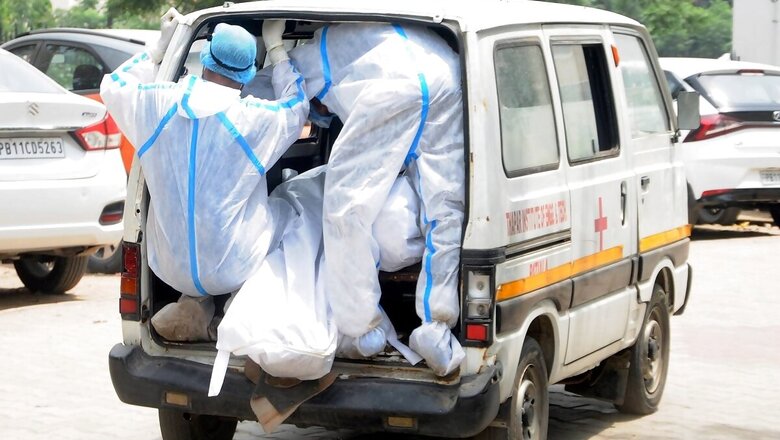
views
Much is being discussed about the possibility of a third wave and its impact on the country that is already ravaged by the pandemic that has made a deadly resurgence over the past few weeks. However, Professor Gautam Menon, who teaches physics and biology at Ashoka University said there is no way the third wave can be predicted. He rather suggested that people wear masks, avoid crowds and go for vaccination. A votary of random testing, Menon warned against reading too much into falling positivity rates during an interview with News18.
Edited excerpts:
The health minister of Maharashtra alerted on April 30 that the might witness a third wave of COVID-19 in July-August. How do we better prepare for the same?
There’s no way a third wave or resurgence can be predicted. Hence, anticipating the same in July-August may simply reflect that it was at that time last year that the first wave began to take off in terms of significant numbers of cases. Many things have, however, happened since then, including the complete vaccination of a reasonable number of elderly people, and current wave of the infection. All these may help in providing immunity to any newer variant. It would be good to ensure that random testing is done at a large scale across the states and reported, so that we can remain alert to any systematic trend indicating an increase.
What does the falling positivity rate indicate as recently seen in Delhi – lesser than 30%?
I would not say that Delhi is out of the woods yet – this drop may only be illusory. There are many delays in people being tested and laboratories returning results and some people may be showing symptoms of COVID-19, yet be unwilling to go to hospital except when it may be too late. I would wait to see the test positivity drop below 15% on a consistent basis before thinking that there has been some improvement.
How do you compare the current pandemic situation under cloud of new variants with what happened in 2020?
It is likely that new and more transmissible variants will drive what happens in the future. This virus is a stealthy one but its bag of tricks may be limited. Only more research will tell. We need to understand more about the impact of COVID in India, at the individual as well as the population level.
We should improve our sequencing as well as our case detection, so that new variants that are positioned to be more transmissible or virulent can be tracked from the beginning and measures taken accordingly.
There is uncertainty about this virus – how long do we have to live with it?
It is hard to say that now, but we are slowly learning more. Once more people are vaccinated, the dangers of a similar event at the current scale will be reduced. For the next several months, at least, it would be best to be cautious, wear masks in public and avoid crowds. And, of course, get vaccinated.
Read all the Latest News, Breaking News and Coronavirus News here. Follow us on Facebook, Twitter and Telegram.



















Comments
0 comment